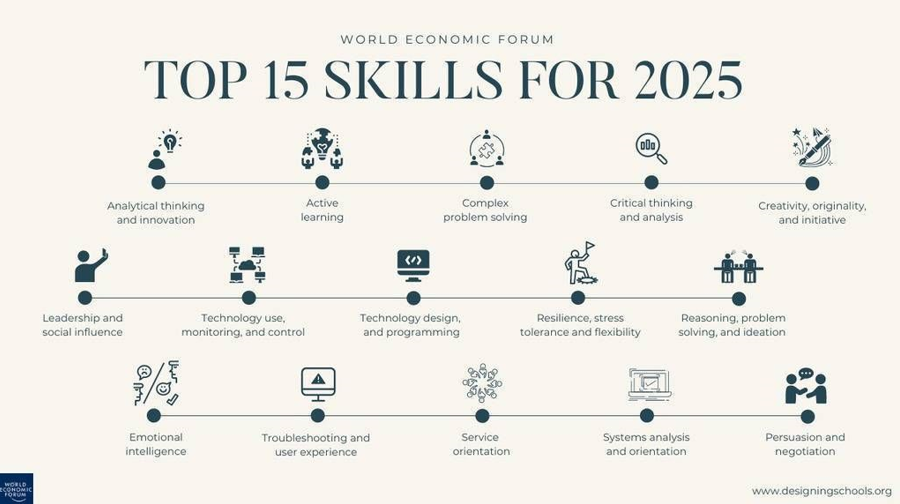15 skills projected to be most relevant by 2025
In October 2020, the World Economic Forum (WEF) published its third edition of the "Future of Jobs" report. Analyzes future trends in labor markets and provides essential information to guide employers and workers to upcoming opportunities.
In this post, we will share with you the 15 skills that are considered crucial for future company collaborators. This knowledge is key when it comes to developing or working on skills in professional profiles since they will surely be in high demand in the near future, if not already.
It is important to note that the COVD-19 and its consequences have impacted these new skills identified by the WEF, since automation, teleworking, as well as the economic crisis, and high levels of inflation, will be key in determining the new world of work.
Taking these new areas into account is very valuable for people who remain active in the workplace, regardless of the role they play, senior executives, workers, and entrepreneurs; everyone will be impacted by these skills in the medium term.
A very interesting fact to highlight from the results of this report is that, between 2019 and 2020, 4 times more people sought to learn online through their initiative. And by 2025, the report estimates that 16% of employee retraining in companies will be based on online training platforms.
Top 15 skills of 2025
1. Analytical thinking and innovation
2. Active learning and learning strategies
3. Complex problem-solving
4. Critical thinking and analysis
5. Creativity, originality, and initiative
6. Leadership and social influence
7. Technology use, monitoring, and control
8. Technology design and programming
9. Resilience, stress tolerance, and flexibility
10. Reasoning, problem-solving, and ideation
11. Emotional intelligence
12. Troubleshooting and user experience
13. Service orientation
14. Systems analysis and orientation
15. Persuasion and negotiation
Think about which of these competencies do you need to strengthen?

The data used in the WEF report was collected over a nine-month period, from January to September 2020. It includes 291 unique responses from global companies. The data collectively represents more than 7.7 million employees worldwide. For more details on the method, you can read the report available here.